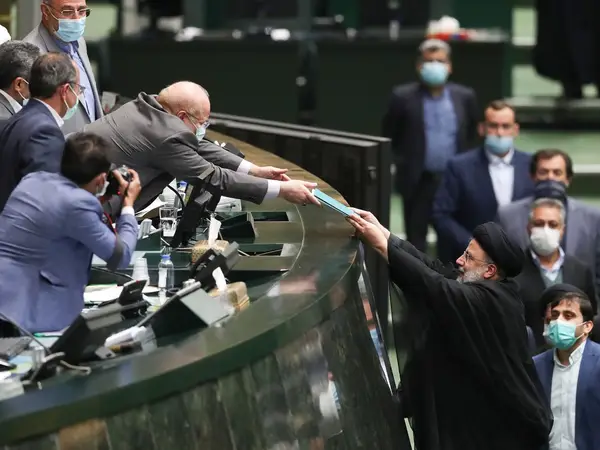Chairman of the Executive Board of Iran's National Development Fund says governments must be prevented from exhausting the fund's resources to supplement their budget.
Speaking to the official news agency IRNA Sunday, Mehdi Ghazanfari, chairman of the executive board of Iran's sovereign wealth fund (NDF), criticized governments, past and present, for taking a larger share from the fund's reserves than they were allowed by law.
Ghazanfari said that governments should not rely on the NDF to supplement their budget, but they always resort to taking money from the fund when they face problems. "The fund's resources should increase to the level that it can provide the country's budget if we are not able to sell gas and oil."
The fund aims to turn some of the country's petrodollars to durable wealth, productivity, economic incentive and capital and preserve wealth from oil and gas for future generations.
The budget bill presented by President Ebrahim Raisi's government to parliament on December 12 proposed to save only 20 percent of oil revenues and transfer the other 20 percent, which should have been given to the fund, to the government.
But Supreme Leader Ali Khamenei, whose authorization was required, refused to allow the government to borrow from the fund to supplement its budget. Borrowing from the fund would mean printing Iranian rials and spending it in the country, further fueling inflation, which now stands at around 40 percent.
Based on the country's fifth and sixth five-year socio-economic development plans, the percentage of the fund's share from oil revenues has grown from 20 percent to 40 percent since 2011 when the fund was established.
Ghazanfari said the fund is now seriously seeking to recoup all the past loans paid to various government organizations, such as the National Iranian Oil Company (NIOC).
He also suggested that the fund's articles of association need to be revised so that the fund extends 30 percent of its resources to private, cooperative, and non-governmental sectors as loans, and ideally even use the 20 percent share of the government to help the private sector.
The remaining 50 percent of the fund's resources must be used for investment, he said, adding that they are also considering a revision in the conditions for offering loans in the future.
Like the currency reserve fund established in 2000, all administrations have borrowed from the fund for various purposes, including 2 billion euros in 2019 to increase the military's budget. The administration of President Mahmoud Ahmadinejad borrowed heavily from the fund which had been handed over to him with over $24 billion, including $2.7 billion to pay New Year cash handouts to all Iranians in 2013.
In 2008, the Ahmadinejad government classified information about the fund. In 2013, the newly elected President Hassan Rouhani said the fund had completely been drained by his predecessor. There is currently no concrete information on the fund's assets, but it is clear billions have been withdrawn since 2018 when the United States abandoned the 2015 nuclear agreement and imposed sanctions.
According to the charter of the National Development Fund, 40 percent of oil revenues next year should be saved by the government in the fund for investment on productive economic activities that would guarantee the welfare of future generations.
